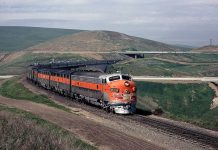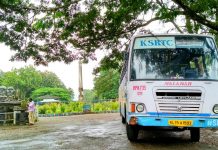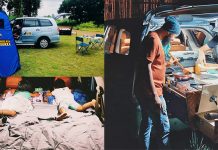The nostalgia for train journeys
My fondest childhood memories are of taking the Coromandel Express train from Howrah to Chennai during summer vacations. Usually my mother, elder sister and I travelled from Calcutta (it wasn’t Kolkata then) to Kottayam in Kerala, where my maternal grandparents lived.
After reaching Chennai, we used to take a connecting train to Kottayam that left Chennai by afternoon. That meant spending the time since early morning, when the Coromandel Express reached Chennai, till we caught the connecting train in the afternoon, in the station itself. Often relatives from the city came visiting us at the station. In those days when mobile phones and Internet weren’t a part of the lives of middle class families, stopping by the railway station where a relative was changing trains was an easy way to catch up with them and exchange some food as well as gossip.
I remember once my mother’s cousin had visited us at the Madras Central station. He carried our luggage – consisting of two big suitcases, in each hand – and made us hold instead two big bottles of Pepsi, a bag of potato chips and three packets of thayir saadam wrapped in banana leaves and newspapers, for dinner . We had our lunch at the station. By the time we unwrapped the dinner packets at night, the food had gone bad! We travelled by second class sleeper coach in those days and in the absence of air-conditioning, the food perished quickly in the hot summer. I remember throwing those packets of curd rice with pickle out of the moving train’s window. How they landed with an ugly, white splatter on the disappearing tracks!

My most memorable family holiday train journey was in 1993 when we went to Coimbatore to attend my mother’s sister wedding. We’d taken the Coromandel Express from Howrah and changed trains to Coimbatore from Chennai. Dad too had joined us on this trip. He had filled our tiny hand bags with plenty of chocolates – bars of Dairy Milk and 5 star, éclairs, Cadbury Gems, choco wafers with orange-fillings – and biscuits. Once the train started moving, we began to eat them one-by-one. Besides this, we also targetted the food that hawkers came selling on the train, each time it stopped at a station.
Though our mother always packed a simple meal consisting of rolled rotis and potato curry besides soft idlis smeared with milagai podi , we found eating the piping hot food sold by hawkers at the stations more exciting. Cuttack station arrived around dinner time, where men selling puffy luchis and spicy potato curry, crowded around the train windows. Dad obliged our pleading eyes with a sample of it. Later, when the train stopped at Rajahmundry the next day morning, dad got down at the station and got pootharekulu for us. It is a paper-like wafery sweet. Biting into it felt like chewing paper at first, until the glucose in between the thin wafer sheets dissolved into our tongue spreading its sweetness…
Besides experiencing the varied cuisines of the States we went by, another interesting activity my sister and I indulged in was guessing the names of the rivers and major water bodies that we crossed.
The Coromandel Express passes through four States – West Bengal, Odisha, Andhra Pradesh and Tamil Nadu – and each one had its own rivers and water bodies. The train started at the Howrah station, which stood by the banks of the Hooghly River, a distributary of the Ganga. During the journey, the first major water body we crossed was the vast Chilka Lake in Orissa, a brackish water lagoon that drained off into the Bay of Bengal. The Chilka Lake often attracted a vast variety of migratory birds, and bird spotting was a favourite pastime for us. The Mahanadi at Cuttack station was the first major River we crossed during the journey, then came the Krishna River in Vijayawada and the Godavari River in Rajahmundry. Because we usually crossed Cuttack station at night, we couldn’t view the Mahanadi clearly out the windows.
But that wasn’t the case with the Krishna and the Godavari, which we crossed early in the morning, within a short span of time of each other. My mother often used to wake us up in the morning, so we could fling rupee coins into the river. Not always could we manage to toss the coin so perfectly that we could track its entire journey downwards, slightly changing course as it struck the sides of the metal bridge over which the trains ran, and finally hit the inky surface of the river below, forming tiny ripples. During the summer, the rivers were bone dry with sandy patches here and there, and one had to wait patiently for the train to reach the middle of the river where the water level was high enough to throw the coins. We often made a short prayer of wish fulfilment and kissed the tip of the coin before flinging it.
Once during a vacation train journey en route Kerala, a train ahead of us, the Dhanbad- Aleppey express met with an accident. It was way back in the nineties. We were stuck in a rural station in Tamil Nadu named Morappur for nearly 16 hours, till the tracks ahead were cleared. Passengers, including us, ran out of food and water. A lone dosa counter in the small railway station made a fortune that day from selling dosas for twice the usual price; however, the villagers were kind enough and let us draw water out of their wells free of cost. I remember going along with my sister and fetching drinking water from the well in used railway water bottles.
And therein lies the charm of train journeys from an earlier time: we experienced the hospitality of strangers in the middle of nowhere.
By Vidya Venkat



















